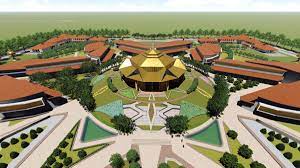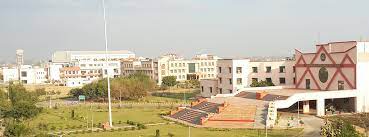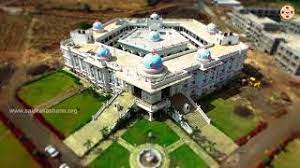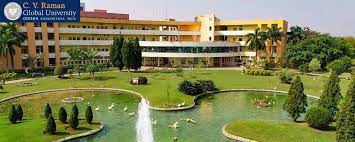The Ph.D. in Life Science is a doctoral degree that prepares students for independent research. The program consists of research seminars, qualifying examinations, and a thesis. Students complete four to five years of full-time study in order to earn their degree. The coursework consists of coursework in the field of life science, and students are expected to submit a thesis based on original research. This type of doctorate degree requires extensive research and is a good choice for a career in medicine or biotechnology.
The program prepares students to become technically competent, broadly trained, and original scientists. Graduates are prepared for research and development positions in diverse bioscience and industrial settings. A Ph.D. degree in Life Science can lead to jobs in academia, the private sector, and government organizations. Some of the most popular jobs for Ph.D. students are in environmental research, forensic science, or pharmacology. There is also an opportunity for a career in biotechnology and agriculture.
A Ph.D. in Life Science is an advanced Master's degree. Graduates of this program have a diverse range of job options. These positions include positions in academics, government, or the private sector. These graduates can choose between teaching and research. In addition to research and teaching, they can also choose to pursue a job in biomedical research. A Ph.D. in Life Science is an excellent option for individuals with previous training and experience in life science.
Ph.D. in Life Science Eligibility
Candidates who want to take admission in Ph.D. must have a post-graduate degree in Life Science and its relevant discipline with at least 55% marks from a recognized university and must have passed the national level entrance examination or university level entrance examination. National levels entrance exams like UGC NET / UGC CSIR NET / GATE / SLET or University entrance exams consisting of written tests and personal interview
The Benefits of a Ph.D. in Life Science
While many people think that pursuing a Ph.D. is like paying your dues, the reality is that there are many benefits to a Ph.D. in life science. You can meet highly successful scientists and have intellectual freedom, which is crucial to any career. However, you can also risk underpaying yourself and sacrificing your personal life. Graduate school can take anywhere from four to eight years, and it can be tough to fit it all in.
In addition to its financial benefits, a Ph.D. in life science will help you find a good job. It's not always easy, especially in life science, but it can be a rewarding endeavor. You'll learn a lot about research methods and become familiar with the industry's most important players. In addition, a Ph.D. will help you get ahead in your field, which will open up many career options.
The average duration of a Ph.D. in life science has increased by more than two years since 1970. That number has increased to about 60% in recent years. It is also becoming more difficult to get a good job after graduating from graduate school in life science. But, while the unemployment rate has gone up for PhDs in the field, there are still plenty of opportunities outside academia. As long as you're willing to work hard, you can find a great job after completing your Ph.D.
The Career and Job Opportunities of a Ph.D. in Life Science
Many Ph.D. graduates think that the only career options for them are in academia. However, many industry jobs are available, including biotech and pharma. This article will discuss the benefits of working in an industry environment after earning a Ph.D. It's a good idea to have a Ph.D. in life science before applying for a job. This way, you can be sure that the career you pursue will be worthwhile.
Not everyone who completes a Ph.D. in life science plans to stay in research. While some people do love science, they have grown tired of it. Others may simply want to pursue a career in a different field. For these individuals, the job market is no longer as plentiful as it once was.
The career opportunities for a Ph.D. in life science are extremely varied. Some are in the lab, while others choose a non-lab-based career. For those who are not interested in research, there are also a few other options available. The school's School of Life Sciences offers four sectional research concentrations: Ecology and Evolutionary Biology, Cell and Molecular Biology, and Microbiology.
The Future Scope of a Ph.D. in Life Science Program
The Ph.D. in Life Science program is becoming increasingly competitive, which affects both the number of students and the type of careers available. While an abundance of qualified PhDs is an advantage for established investigators, a shortage of skilled researchers could harm the future of the research enterprise. Young scientists are suffering from a "crisis of expectations" because of the lack of jobs and opportunities for advancement. As a result, students should be realistic about their career options.
Job prospects in the field of Life Sciences are excellent. With an impressive educational background, life scientists can earn a good living in a variety of fields and be well-qualified for a wide range of careers. There is a growing need for highly trained, qualified, and experienced life science specialists and a Ph.D. in the subject will help them get that position. As a result, the future scope of a Ph.D. in Life Science is bright.
A Ph.D. in Life Science program will provide you with the necessary education and experience to enter a variety of careers. You will be able to work in an academic setting as an assistant professor or an employee of a pharmaceutical company. This can be a rewarding and exciting career choice for life science Ph.D. holders. However, the options for this type of job have changed dramatically over the last three decades. Historically, the most popular employment opportunity for life scientists was in academia.
Ph.D. Research Programme duration
The Ph.D. in Life Science course is a minimum of 3 years and a maximum of 5 duration. This depends on the university offering the course.
Fees for research program for Life Science
The average fee for Ph.D. in Life Science degree is between INR 50000 and INR 500000.
 5 Years
5 Years
 PhD
PhD
 Research
Research

































 back
back